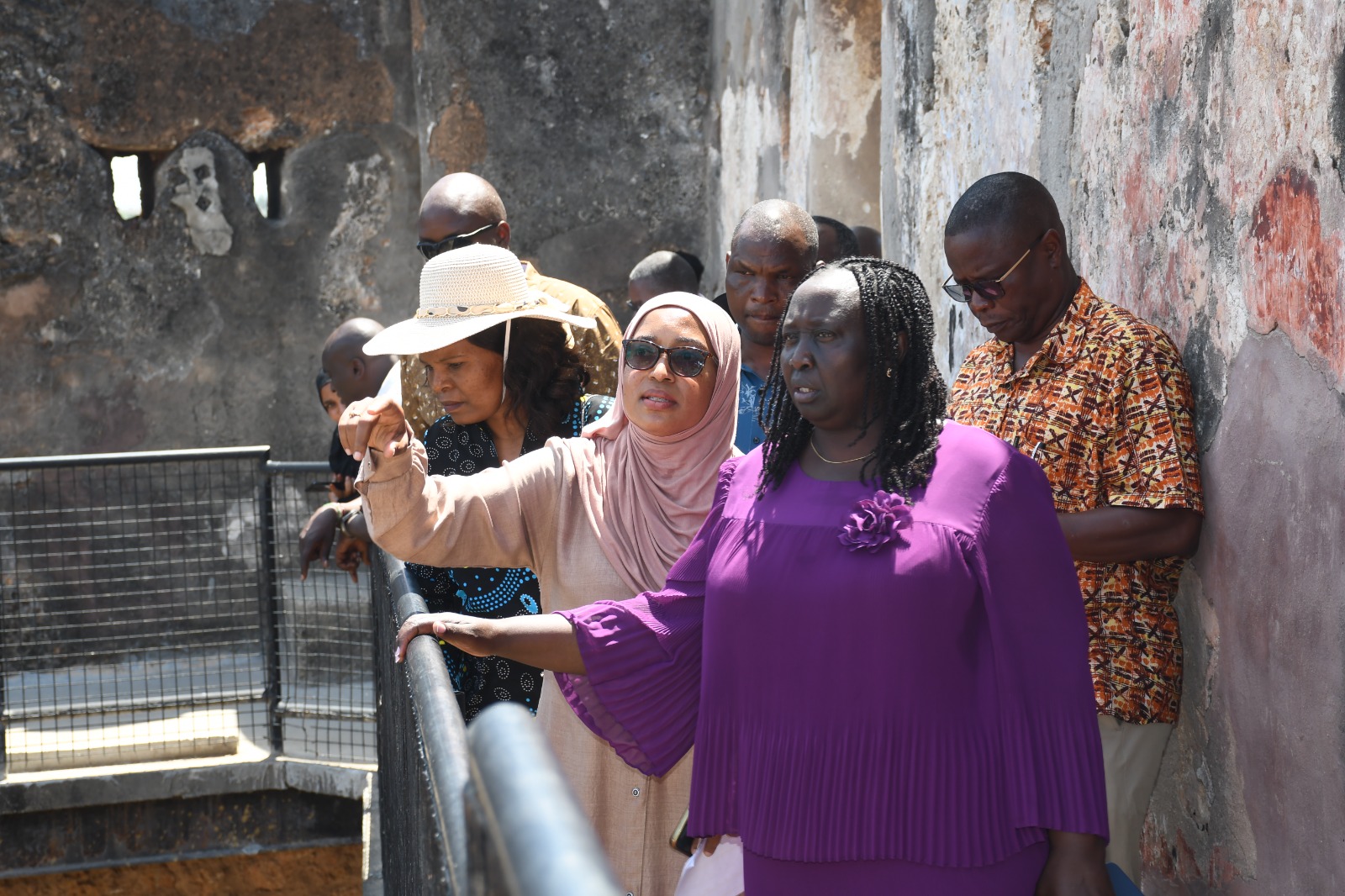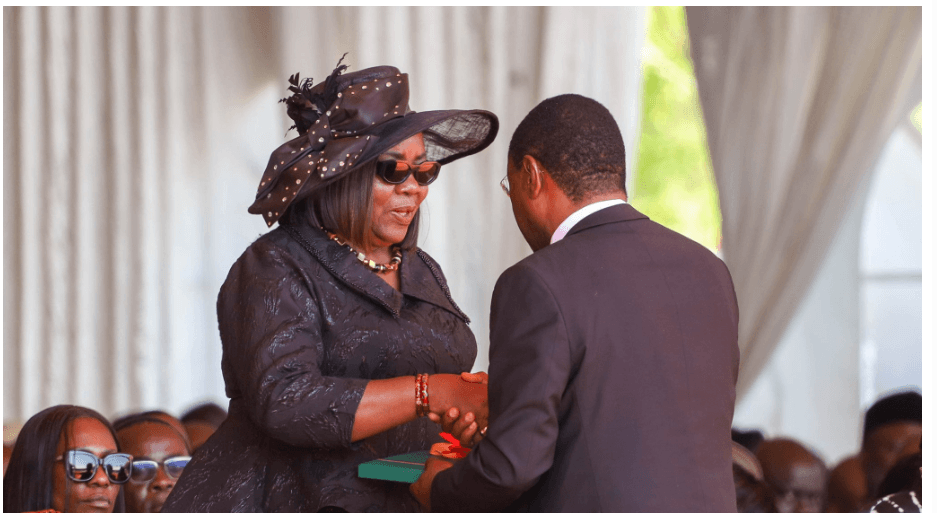
The government has announced faster titling and other measures to safeguard Kenya’s heritage sites from encroachment and land grabbing.
The
problem is rampant in Kilifi county.
Culture, Arts and Heritage CS Wendot Cheptumo said the initiative will be implemented jointly by the national and county governments to preserve key cultural and historical landmarks.
Speaking at Mombasa’s Fort Jesus Museum, a Unesco World Heritage Site, Cheptumo reaffirmed government’s commitment to conserving sites as part of Kenya’s cultural identity.
The Portuguese Fort was built from 1593-1596 to protect the port of Mombasa. The fort's layout and form reflected Renaissance ideal that perfect proportions and geometric harmony are found in the human body. The fort's proportions and layout in the shape of a man lying on his back, with his head facing the ocean
“What we see today at Fort Jesus is the result of years of dedicated preservation,” she said.
The site serves as an educational and commercial hub, where young people display traditional crafts and sell artefacts to tourists.”
The CS thanked the French government for supporting digitalisation of the site and urged more community participation in conservation, including tree planting to meet the national target of 15 billion trees by 2032.
She encouraged the promotion of Swahili cuisine and traditions to sustaining local culture.
“This is an important heritage site that must be protected. We are calling on the county government to partner with us to ensure it remains intact. We have a duty to preserve what we inherited and pass it on to the next generation,” Cheptumo said.
National Museums of Kenya (NMK) board chairman Edwin Abonyo said the institution has embarked on titling all heritage sites countrywide to shield them from encroachment, especially in coastal areas such as Kilifi county, where such land theft is rampant.
“These are national monuments that must be protected. While we appreciate devolution, national heritage sites like Fort Jesus are not devolved functions,” he said.
Abonyo said NMK has rolled out the National Product Industry (NPI) programme in 13 counties to document and digititalise Kenya’s diverse cultural practices, including traditional medicine, cuisine, and art, to build a national digital heritage repository.
NMK managing director Professor Mary Gikungu commended the ministry, NMK leadership, and staff for their unwavering commitment to heritage preservation.
“We are proud young people are engaging with our history and expressing it in modern ways,” she said.
“It’s an honour to be part of the team
safeguarding Kenya’s national heritage.”












